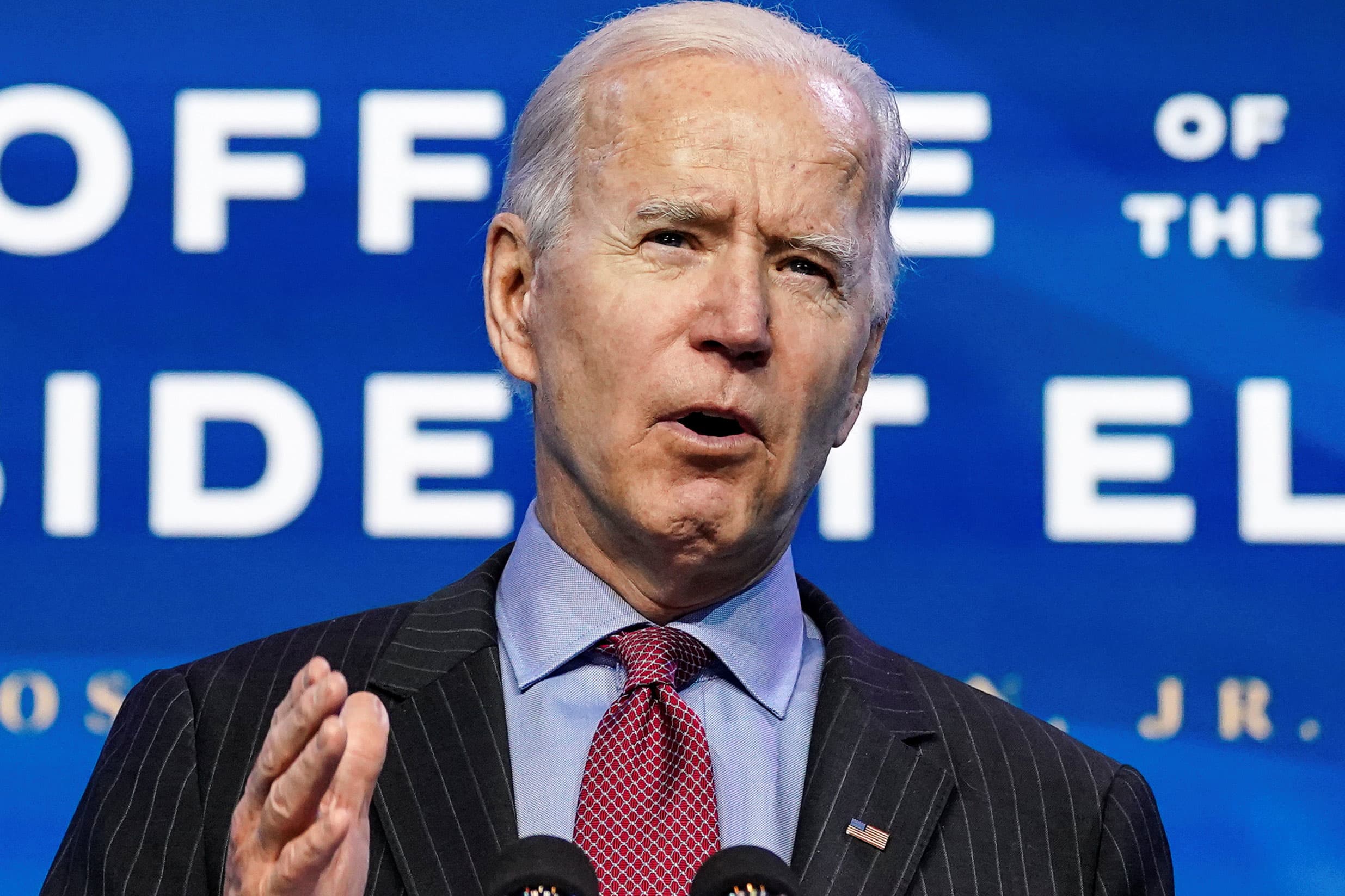
U.S. President-elect Joe Biden speaks as he announces members of economics and jobs team at his transition headquarters in Wilmington, Delaware, January 8, 2021.
Kevin Lamarque | Reuters
President-elect Joe Biden is expected on Thursday to unveil his long-awaited stimulus plan, with those familiar with the legislation suggesting it will seek to draw bipartisan support in Congress.
The the proposal is expected to contain several Democratic priorities, including a boost to the recently authorized $600 direct payments to most Americans, an extension of increased unemployment insurance and support for state and local governments.
Though some had at first wondered whether Biden would try to ram the stimulus through Congress using a special budgetary rule that could allow it to pass with only Democratic votes, a person familiar with the transition team’s thinking confirmed that the president-elect is interested in drumming up bipartisan support.
The bid for Republican backing has led some to wonder if Thursday’s bill will come in at or below the “trillions of dollars” Biden promised last week.
Republicans, more wary of big-ticket spending in light of last month’s $900 billion stimulus, may be willing to sign on to Biden’s plans if the president-elect floats the bill in phases.
“I believe [the stimulus bill] will focus on a new round of [direct payments], but smaller than $2000,” that some in Congress are calling for, said Tom Block, Washington policy analyst at Fundstrat Global Advisors, in an email. “Some Republicans will engage, and hopefully [lawmakers] can avoid a Republican Senate filibuster.”
To avoid a filibuster the bill would need 60 votes in the Senate.
For his part, Block believes Thursday’s bill will include an increase in the $300 unemployment supplement, an extension of eviction moratorium and “hundreds of billions” in government aid.
A spokesperson for Biden’s transition team declined to comment on this story.
Speaker of the House Nancy Pelosi (R), D-Calif., and Senate Minority Leader Chuck Schumer, D-N.Y., hold a press briefing on Capitol Hill on Nov. 6, 2020.
Nicholas Kamm | AFP | Getty Images
The president-elect has for months said passing Covid-19 relief and supporting Americans through recent economic hardship will be his No. 1 priority when he takes the oath of office on Jan. 20.
Friday’s jobs report, which showed that employers shed 140,000 jobs last month, has added to the sense of urgency, though those losses came before December’s $900 billion relief bill became law. Covid-19 has killed more than 380,000 Americans, according to CNBC’s analysis of data from Johns Hopkins University.
Sen. Chuck Schumer, D-N.Y., soon to be the chamber’s majority leader, echoed that need for speed in a letter to colleagues on Tuesday.
“As you know from our work at the end of the last Congress, the job of COVID emergency relief is far from complete,” Schumer wrote. “As soon as the new Senate is organized and Vice-President Harris has been sworn in, we will immediately set to work to deliver on that goal.”
While a handful of Republicans, like Sen. Rand Paul of Kentucky, opposed last month’s $900 billion stimulus bill as wasteful, Biden’s bipartisan aspirations may not be out of reach in the wake of a violent, pro-Trump riot on Capitol Hill on Jan. 6.
The unrest, which lead to at least five deaths, has sparked a wave of bipartisanship at the Capitol and led to calls for President Donald Trump’s removal from both sides of the political aisle.
Senator Marco Rubio (R-FL) asks a question to Secretary of State Mike Pompeo during a Senate Foreign Relations Committee hearing on the State Department’s 2021 budget, in the Dirksen Senate Office Building, in Washington, D.C., July 30, 2020.
Greg Nash | Pool | Reuters
Sen. Marco Rubio, R-Fla., said on Thursday he would be in favor of $2,000 stimulus checks and otherwise open to discussions with his Democratic colleagues in a letter he sent to the president-elect.
“Although I share many of my colleagues’ concerns about the long-term effects of this additional spending, we simply cannot ignore the fact that millions of working class families across the nation are still in desperate need of relief,” Rubio wrote.
“It would send a powerful message to the American people if, on the first day of your presidency, you called on the House and Senate to send you legislation to increase the direct economic impact payments to Americans struggling due to the pandemic from $600 to $2,000,” the Republican added.
Biden’s interest in garnering bipartisan support for his stimulus proposal may also be a good-faith effort to encourage the collaboration that will be necessarily in a Senate divided 50-50 after two runoff elections in Georgia gave Democrats two additional seats in the chamber.
Vice President-elect Kamala Harris will cast the tiebreaking vote in the new Senate.
The president-elect may also hope the cooperative stance will encourage Senate lawmakers to separate haggling over the Covid-19 relief legislation from Trump’s potential impeachment trial and the more-routine process of confirming cabinet nominees.




